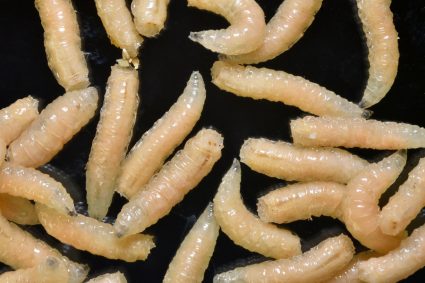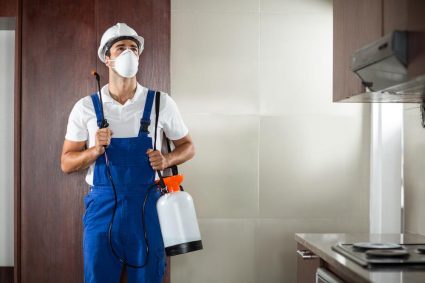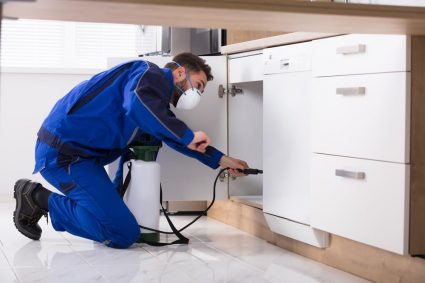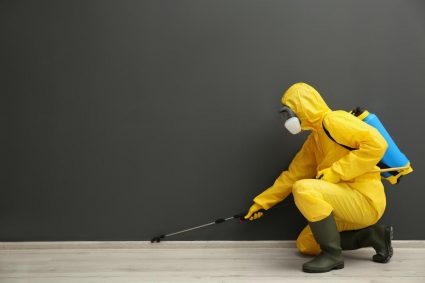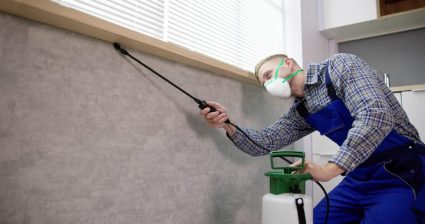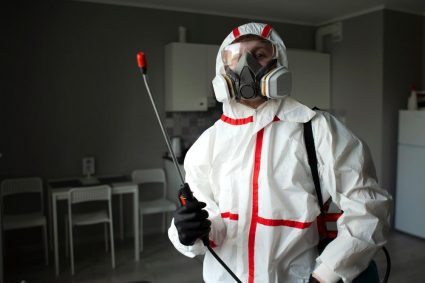
Imagine driving home from work and seeing a tent covering your neighbor’s house! A chilling sight, we know — but do not panic. Your neighbors are not bringing the circus to the neighborhood.
A tent on their property indicates they may have invited exterminators to their house. Exterminators often use tents to facilitate serious extermination procedures involving stubborn pests like termites and rodents.
But why do exterminators tent houses to get rid of pests?
This article will answer this question and more.
- Handling pest invasions is no easy task. Things become more complicated when the pests hide in hard-to-reach areas like building foundations.
- Regular pest control measures like traps and insecticide sprays will not do the job in such cases.
- One effective age-old way to fix such problems is tent fumigation.
- Although very potent in deterring insects like termites, this pest-deterrent strategy is not DIY friendly.
Below, we will explain everything you need to learn about tent fumigation and why exterminators tent houses.
What Is Tent Fumigation?
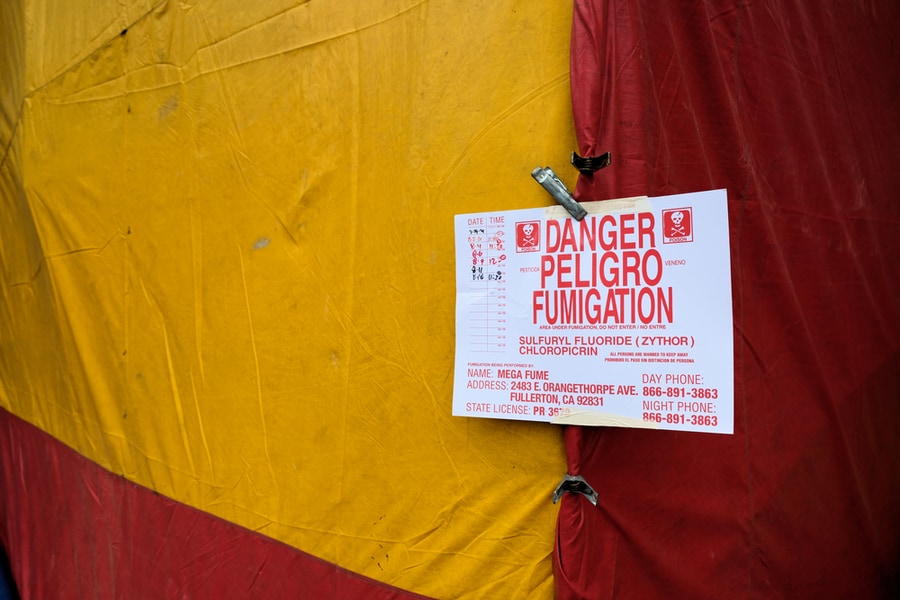
This pest control procedure involves encasing a property in a tarp to contain the fumigant. Exterminators depend on this technique to eradicate property-damaging pests like termites.
As such, tent fumigation is not fit for every pest infestation situation, but it is a widespread practice. However, this is not something you can do on your own as a homeowner.
Tent fumigation is best left to the professional since it involves specialized equipment. These pieces of equipment require years of practice to get right.
During the fumigation process, a leak can cause gas to escape. But this is not often a cause for worry, as it dissolves into the air in no time.
The procedure is safe for residential neighborhoods, provided nobody enters the fumigated home.
As an added advantage, the pests within the house cannot spill over into another place during the extermination process. This is because the tarp — typically made from tarpaulin — holds them all inside, ensuring a complete eradication.
Reasons Behind Exterminators Tenting the Houses
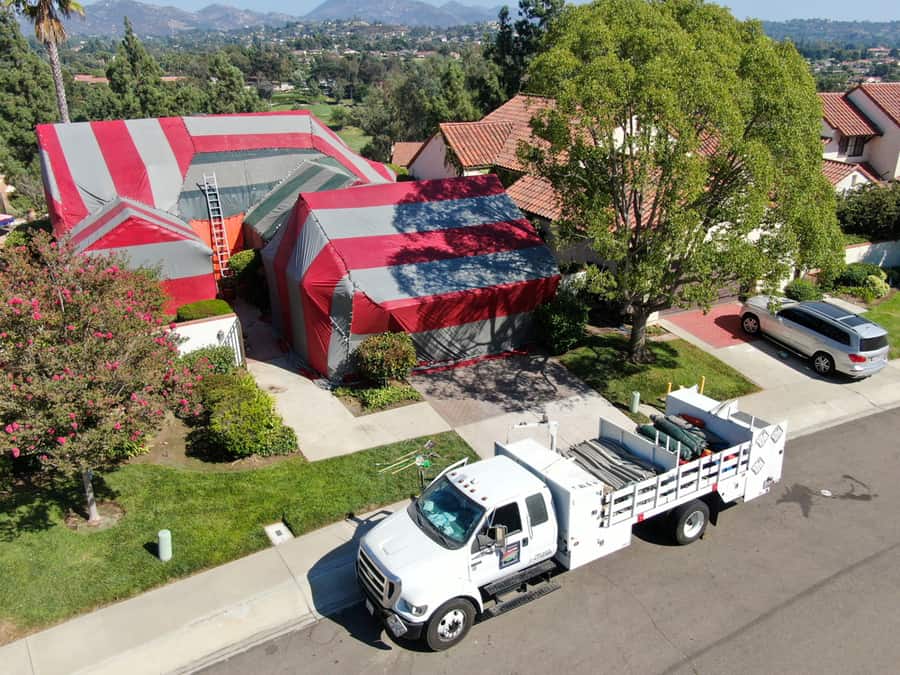
Exterminators tent houses to trap the toxic chemical fumes inside until they finish with the fumigation process. They resort to this technique when the pest infestation is severe and in hard-to-access areas.
It is typically used for pests that attack the structure and foundation of a building. For example, pests like termites do not run around for us to see. Instead, they burrow in walls and floorboards — out of sight.
As such, regular pest control measures like traps and insecticide sprays will not work on them. Exterminators will then rely on tent fumigation as a technique of last resort to fix the situation.
How Does Tent Fumigation Work?
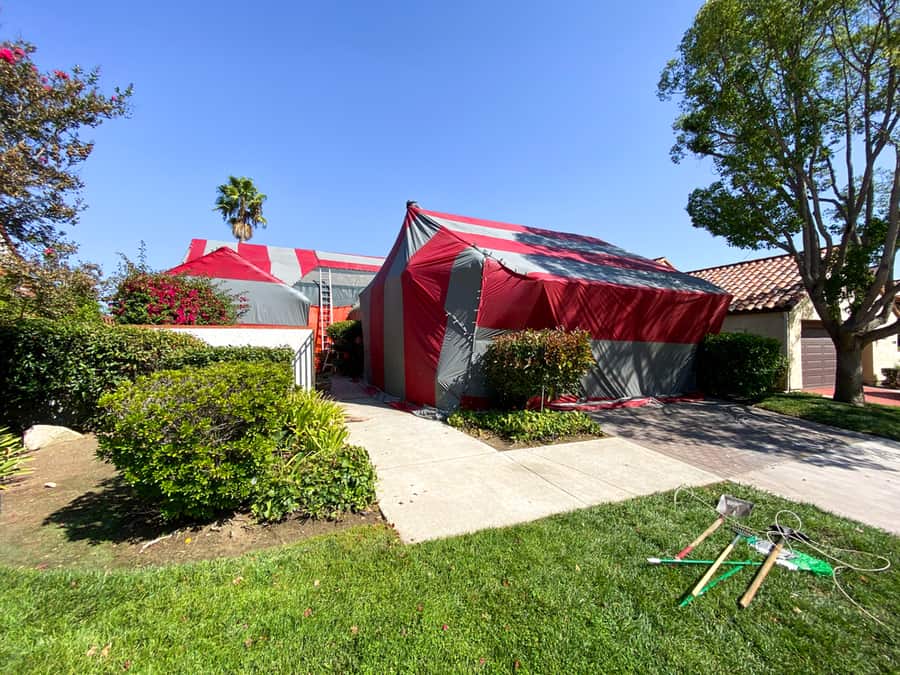
First, you should note that this procedure is complicated and dangerous when not done correctly. That is why we keep repeating that trying it alone is not advisable.
Standard tent fumigation starts with removing all occupants from the house to a safe location. Then, food items, pets, live plants, medicines, and anything at risk of contamination must go.
The pest control experts sometimes open cupboards and drawers to maximize the effect of the fumigant. Then, they would seal all exits with a special tent before pumping fumigant gas into the building.
This special tent acts as a sealant around the building. It allows the chemical gas to circulate and seep into every part. The process can take six hours to a week, depending on certain factors.
Some of these factors are how severe the infestation is, the size of the house, and weather conditions. But while the treatment persists, the exterminators will leave a warning sign outside to discourage visitors.
After this, the fumigation procedure is the airing process. This phase involves stripping the protective tent off the house and letting fresh air inside.
Before fully exposing the house, the exterminator would first test the air. This procedure is necessary to establish if the house is fit for re-entry.
If it is, then they will return the occupants to the house. Otherwise, more ventilation will need to enter the house before it becomes safe.
Is Tent Fumigation Against Termites?
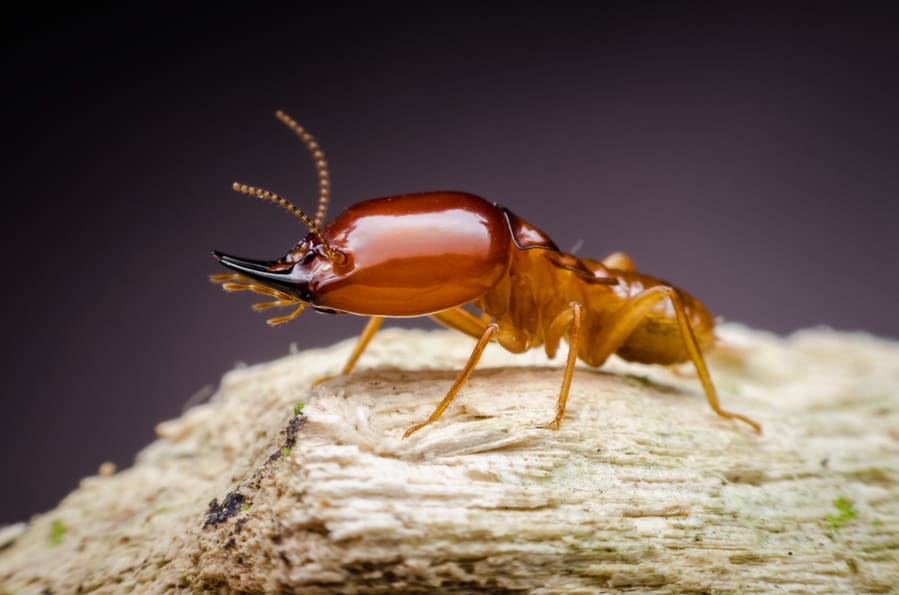
Tent fumigation remains one of the most effective elimination techniques against stubborn termite species like dry wood termites. As their name suggests, these termites live inside wood and are a menace because they are challenging to locate.
During tent fumigation, the chemical fumigant spreads into cracks, crevices, and between wood, where these termites hide. Trapped in the sealed building and starved of oxygen, the termites have no choice but to inhale the toxic chemicals.
This chemical goes to their nervous system, causing instant death. The exterminators then leave the tarp until enough time has passed to guarantee the end of these termites.
However, while this technique is effective against existing termite colonies, it will not prevent a new infestation.
Sealing cracks, regular inspection, maintenance, and wood treatment are some ways to prevent termites from returning.
Steps To Prepare for Termite Tent Fumigation
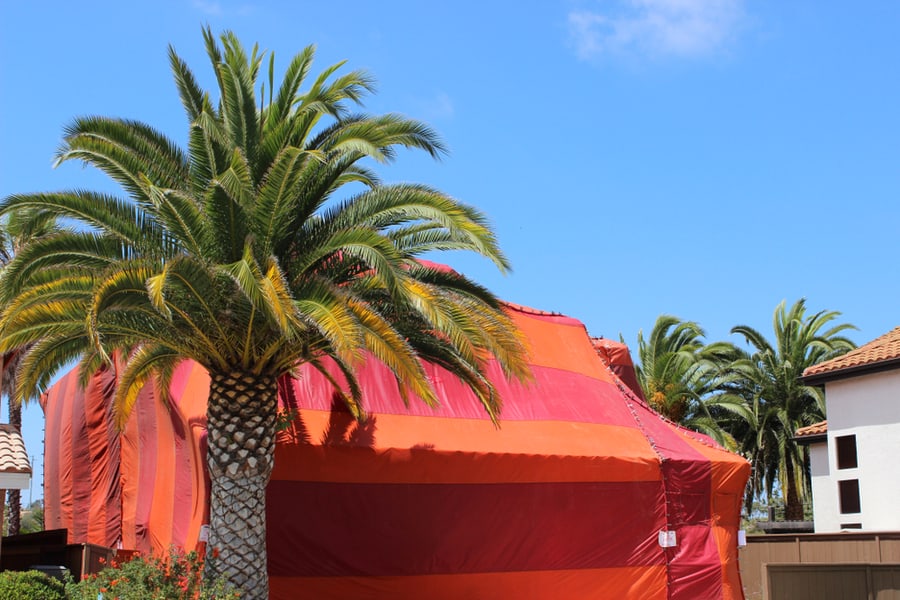
Generally, exterminators provide guidelines for preparing a home for tent fumigation. Some of these guidelines include those above, like removing food items and relocating the family.
However, here are some general guidelines you can adopt to better prepare for the fumigation process:
- Move all clothes, bedding, and curtains to a proper storage area outside the house. But if you can’t take them outside, seal them in appropriate bags with no holes.
- Turn off and unplug your electrical appliances like refrigerators, microwaves, and heaters. You can even call the gas company to disconnect your supply until the fumigation process is completed.
- Remove plastic covering from furniture like cushions and baby cribs. This way, the pests have nowhere to hide from the chemical fumigant. Plus, these plastic coverings can reduce the effectiveness of the chemicals, so you don’t need them present.
- Leave the doors inside the house open to allow the free flow of chemical insecticide from room to room. The exterminators will lock and seal the entry and exit points which should be enough.
- Leave a set of keys behind for the exterminators to access different parts of the house, including the garage.
After the fumigation process and the exterminators leave, wash your clothes and utensils before use. This will eliminate faint traces of chemicals on these items, including those you stored away carefully.
Then, follow this up by wiping down surfaces, from kitchen countertops to doors, floors, and windows. This way, you can catch even the faintest chemical residue.
Conclusion
Tents going up in the neighborhood typically sparks curiosity in both kids and adults. But while it may look amusing, it only suggests that the homeowner is dealing with a severe infestation.
Such an infestation requires expert help, and no DIY traps, sprays, and other at-home remedies will work.
Above, we discussed everything that goes into this over-the-top procedure. While it may look overwhelming, correctly understanding the steps will help with better preparation and eventual pest control.
Frequently Asked Questions
Can Tent Fumigation Harm Humans?
The only humans at risk from tent fumigation are those who refuse to evacuate the house. Otherwise, the procedure poses no immediate threats to humans.
How Often Should I Fumigate?
You only need to fumigate when dealing with extreme cases of pest invasion. Otherwise, simple at-home pest control techniques should work fine.

